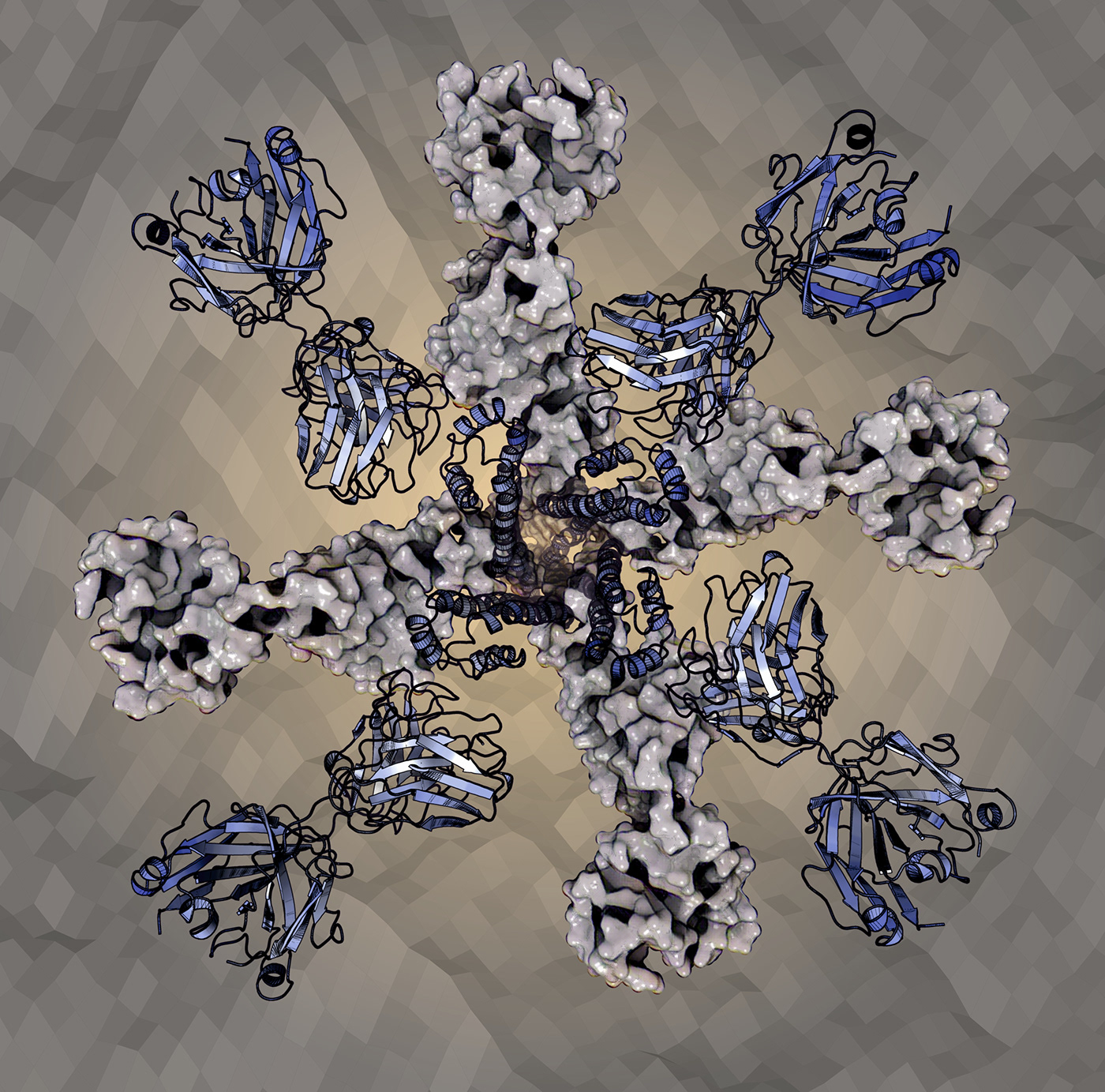


Antibodies are integral components of the immune system and represent a rapidly growing sector of the biotechnology industry. Clinically, antibodies serve as diagnostic markers for disease antigens and play increasingly important roles as therapeutic agents for a wide range of diseases. Antibodies also provide invaluable biomedical research tools, serving to define the components and functions of macromolecular complexes, to establish cellular distributions of proteins, and to facilitate structural analysis as chaperones for crystallization of membrane proteins. Hybridoma and other technologies have yielded antibodies against a vast array of specific antigens. An enormous body of literature documents the molecular details of antibody interactions with a variety of antigens, including proteins, polysaccharides, and small haptens. For specific proteins or nucleic acids, scientist have used antibodies to help in their crystallization experiments. The presence of specific antibodies could induce the crystallization of the targeted molecule under certain conditions. Here you have an example of a co-crystallization experiment helped by a Fab antibody fragment that induces the crystallization of a human voltage-gated ion channel. The antibody chains are located in the periphery of the complex and stabilize the structure of the ionic channel even in the absence of the lipidic membrane environment (PDB code: 7PG8)
#molecularart ... #immolecular ... #antibody ... #channel ... #voltage ... #helping ... #crystallization ... #xray
Structure of the antibody-protein complex rendered with @proteinimaging and depicted with @corelphotopaint
#molecularart ... #immolecular ... #antibody ... #channel ... #voltage ... #helping ... #crystallization ... #xray
Structure of the antibody-protein complex rendered with @proteinimaging and depicted with @corelphotopaint

